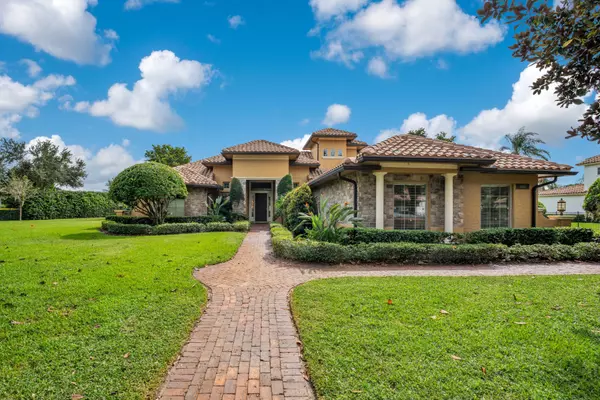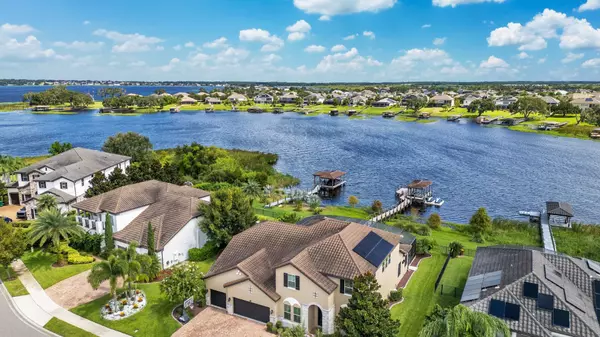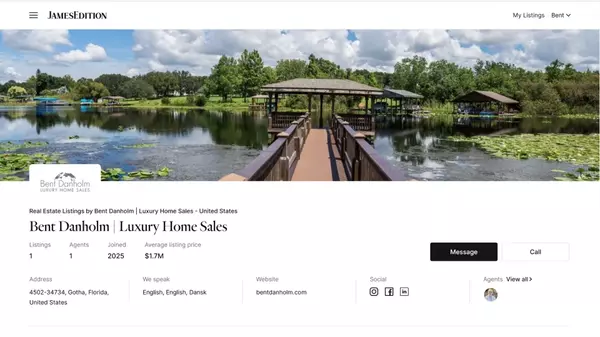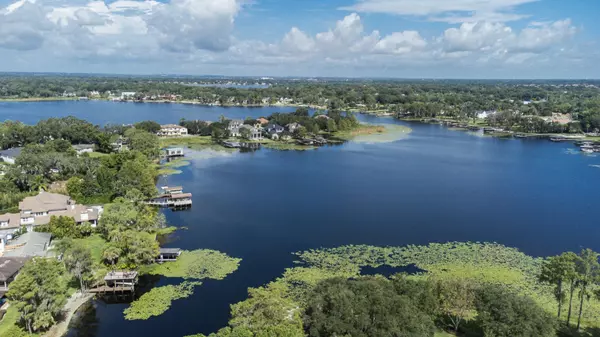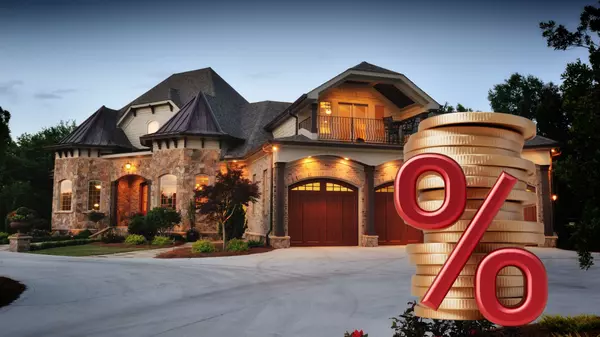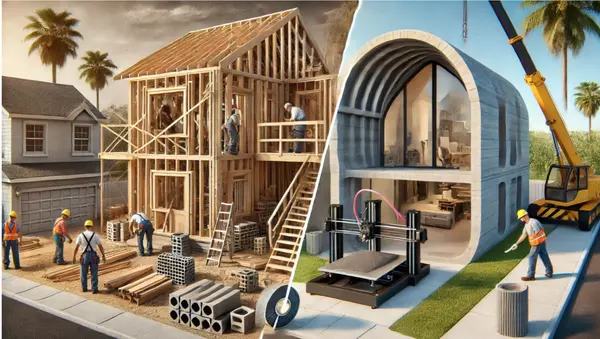Tax Credits in 2025 for Home Improvements in Florida: A Guide for Central Florida Homeowners

Imagine upgrading your home while saving thousands in the process—sounds like a win-win, right? For Florida homeowners, especially those in Central Florida, 2025 offers a range of exciting opportunities to save on home improvements thanks to federal and state tax credits, rebates, and utility programs. From 30% tax credits for solar panels to rebates of up to $14,000 for heat pumps, these incentives can help you make smart, energy-efficient upgrades.
In this guide, we’ll break down the best tax credits and programs available, highlight the most valuable upgrades for Florida’s climate, and explain how you can take advantage of these savings.
1. Energy Efficient Home Improvement Credit (EEHIC)
Looking to make your home more energy-efficient without breaking the bank? The Energy Efficient Home Improvement Credit is a fantastic starting point, offering a 30% tax credit on eligible upgrades.
What Can You Upgrade?
Here’s a breakdown of eligible improvements:
-
Exterior Doors
- Get a credit of up to $250 per door (max of $500).
- Must meet Energy Star efficiency standards.
-
Windows and Skylights
- Receive up to $600 in tax credits for Energy Star-certified windows and skylights.
- Perfect for keeping your home cooler in the Florida heat.
-
Home Energy Audits
- Claim up to $150 for a professional audit that identifies ways to improve energy use.
- A great first step if you’re not sure where to start.
-
Insulation and Air Sealing
- Eligible upgrades like insulation or sealing air leaks can earn you up to $600 in credits.
-
Heat Pumps and Biomass Systems
- Earn a credit of up to $2,000 for installing high-efficiency systems like heat pumps, which are ideal for Florida’s climate.
Annual Limits to Keep in Mind
- Most improvements are capped at $1,200 per year.
- Heat pumps and biomass systems have a separate, higher limit of $2,000.
Why It Matters in Central Florida: The humid climate means insulation, air sealing, and heat pumps can significantly improve comfort and energy efficiency, making this credit particularly valuable.

2. Residential Clean Energy Credit
If you’ve been considering installing solar panels, 2025 might just be the year to take the plunge. The Residential Clean Energy Credit offers 30% back on renewable energy systems, with no cap on the credit amount.
Eligible Renewable Energy Systems
- Solar Panels: Covers 30% of the installation costs, including labor and equipment. Florida’s abundant sunshine makes this a no-brainer.
- Battery Storage: Systems that store at least 3 kWh of energy now qualify. This is especially useful during power outages from Florida’s frequent storms.
- Solar Water Heaters: Must provide at least 50% of the home’s water heating from solar energy.
- Geothermal Heat Pumps: These require Energy Star certification but can help reduce cooling costs significantly.
Key Benefits
- No Limits: Unlike other credits, there’s no annual or lifetime cap.
- Roll-Over Option: If your credit exceeds your tax liability, it rolls over to the next year, ensuring you don’t lose out.
Local Tip: Many homeowners in Central Florida are seeing their electric bills skyrocket. Solar panels combined with battery storage can dramatically lower your utility costs while giving you peace of mind during hurricane season.

3. Home Energy Rebates Programs
Backed by the Inflation Reduction Act (IRA), these rebate programs can dramatically cut upfront costs for energy-efficient upgrades.
a. Home Efficiency Rebates
These rebates reward you for reducing your home’s energy consumption:
- Up to $8,000 for low- to moderate-income households.
- Rebates are based on the percentage of energy saved:
- 20% reduction: $2,000 rebate.
- 35% or more reduction: $4,000 or more.
b. Home Electrification Rebates
Focused on switching to electric systems, these rebates can cover significant portions of your costs:
- $8,000 for heat pumps (heating/cooling).
- $1,750 for heat pump water heaters.
- $840 for electric stoves, including induction cooktops.
- Additional rebates for electrical panel upgrades or insulation improvements.
Pro Tip: Combining a heat pump with home efficiency upgrades can maximize your rebate, saving you thousands upfront.
4. State and Local Incentives in Florida
In addition to federal programs, Florida offers state and local incentives that vary by region.
What’s Available?
- Property Tax Abatements: Many Florida counties reduce property taxes for installing renewable energy systems like solar panels.
- Grants for Weatherization: State-funded programs help cover costs for insulation and air sealing.
- Rebates for Energy-Efficient Appliances: From windows to HVAC systems, these programs help cut costs.
How to Find Local Programs
- Use the Database of State Incentives for Renewables & Efficiency (DSIRE).
- Contact your local government or utility provider for details specific to your area.
Local Spotlight: Central Florida counties like Orange and Seminole often offer additional incentives for solar installations or energy-efficient upgrades.
5. Utility Company Programs
Did you know your utility provider might have programs to help you save even more? Many companies in Central Florida run initiatives designed to reduce energy usage.
Examples of Utility Rebates
- Energy Star Appliances: Rebates for purchasing energy-efficient refrigerators, washers, or dryers.
- Smart Thermostats: Discounts for devices like Nest or Ecobee, which can help you save on cooling costs.
- Free Energy Audits: Utility companies like Florida Power & Light (FPL) often provide free audits to identify savings opportunities.
- Financing for Energy Upgrades: Some providers offer low-interest loans for projects like solar panels or insulation.
Quick Tip: Always check your utility company’s website for the latest offers. Programs can change frequently, and new rebates may pop up throughout the year.
Conclusion
Whether you’re upgrading to energy-efficient windows, installing solar panels, or switching to a heat pump, 2025 is packed with opportunities to save money while improving your home. These tax credits and rebates aren’t just about cutting costs—they also make your home more comfortable, reduce energy bills, and help the environment.
For Central Florida homeowners, the combination of sunshine, heat, and occasional storms makes energy-efficient upgrades a smart investment. Explore your eligibility for these programs and start planning your projects now.
Your Next Steps
- Schedule a home energy audit to identify areas for improvement.
- Research local programs and utility rebates to maximize your savings.
- Work with a licensed tax professional to ensure you claim all eligible credits.
Contact me if you need a referral to a trusted local contractor or tax professional.
Categories
- All Blogs (30)
- 1031 Exchange Rules & Regulations (1)
- Absentee Homeownership (1)
- Adjustable-Rate Mortgages (ARMs) (1)
- Affordable Housing Solutions (1)
- Business and Lifestyle in Central Florida (1)
- Buying a Luxury Home (5)
- Celebration, FL (2)
- Central Florida Housing Market (4)
- Central Florida Lifestyle (2)
- Central Florida Living (1)
- Central Florida Real Estate (15)
- Community Spotlight (4)
- Concierge Services (1)
- Custom Home Building (1)
- Eco-Friendly Luxury Homes (2)
- Energy-Efficient Homes (1)
- Exclusive Neighborhoods (7)
- First-Time Homebuyers (1)
- Florida Investment Properties (1)
- Florida Lifestyle (3)
- Gated Communities (2)
- Global Real Estate Exposure (1)
- Global Real Estate Marketing (1)
- Golf Communities (1)
- Gotha, FL Communities (1)
- High-End Property Sales Strategies (2)
- High-End Property Transactions (1)
- High-Net-Worth Property Marketing (1)
- Historic Properties (1)
- Home Builders in Central Florida (1)
- Home Buying Guide (1)
- Home Buying Tips (10)
- Home Design and Architecture (3)
- Home Financing (1)
- Home Pricing Strategies (1)
- Home Restoration (1)
- Home Search Strategies (1)
- Home Selling Options (2)
- Home Selling Tips (8)
- Home Staging (1)
- Homebuyer Tips (7)
- Homeownership (7)
- Homes for sale (1)
- Investment Properties (2)
- Lake Nona, FL (2)
- Lakefront Properties (3)
- Luxury Homes (9)
- Luxury Homes in Central Florida (6)
- Luxury Living (4)
- Luxury Market Insights (2)
- Luxury Mortgage Strategy (1)
- Luxury Property Listings (2)
- Luxury Real Estate (14)
- Luxury Real Estate Investing (1)
- Luxury Real Estate Marketing (3)
- Market Insights (1)
- Mortgage and Financing (3)
- Moving to Florida (2)
- Negotiation Strategies (1)
- Neighborhood Guides (9)
- New Construction Homes (4)
- Off-Market Properties (1)
- Orlando Luxury Homes (3)
- Orlando Luxury Real Estate (2)
- Orlando Market Insights (2)
- Orlando Real Estate Market (2)
- Personal Finance (1)
- Property Investment (3)
- Real Estate Expertise in Central Florida (1)
- Real Estate Investment (3)
- Real Estate Market Trends (8)
- Real Estate Risks (1)
- Real Estate Selling Tips (2)
- Real Estate Wealth Planning (1)
- Realtor Spotlights (1)
- Relocation Guide (6)
- Renting vs Buying (1)
- Selling Luxury Homes (2)
- Subject-To Sales (1)
- Suburban Living (1)
- Sustainable Housing (1)
- Tax-Deferred Real Estate Strategies (1)
- Technology in Real Estate (1)
- Waterfront Properties (2)
- Windermere Real Estate (3)
- Winter Park Real Estate (3)
Recent Posts
